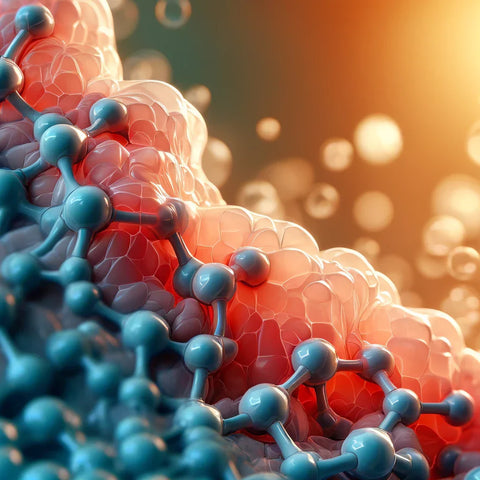Calcium is more than just a mineral; it's a crucial building block for our health. It plays a pivotal role in many bodily functions, including the development and maintenance of strong bones and teeth. In this blog post, we take a detailed look at why calcium is so important, how to ensure you get enough, and what happens when you don't get enough.
Basics: What is Calcium? Calcium is an essential mineral abundant in the Earth's crust and plays a critical role in many biological functions of the human body. It is known for its role in the formation and maintenance of bones and teeth, but it is also essential for the normal function of nerves, muscles, and the heart.
Calcium and bone health: Calcium is the main component of our bones and plays a crucial role in their formation and maintenance. It helps build bone mass during growth and maintain it throughout adulthood. Adequate calcium levels are also necessary to prevent osteoporosis and other bone diseases that become more common with age.
Calcium and dental health: Dental health depends heavily on adequate calcium intake. Calcium strengthens tooth enamel, the hardest substance in the human body, which protects teeth from erosion, cavities, and other forms of tooth loss. A deficiency can lead to tooth loss, tooth decay, and other dental problems.
Other health benefits of calcium: In addition to its role in bones and teeth, calcium also supports vital bodily functions such as:
-
- Blood clotting: Calcium is a key player in the process of blood clotting, which means it helps stop bleeding.
- Nerve signal transmission: It facilitates communication between nerve cells.
- Muscle contraction: Calcium ions contribute to the proper execution of muscle contraction, which is crucial for all body movements.
- Heart function: It regulates the heart rate and supports the function of the heart muscles.
Symptoms and consequences of calcium deficiency: Too little calcium can lead to various health problems, such as:
-
- Osteoporosis: Weakening of the bones, leading to an increased susceptibility to fractures.
- Dental problems: Weakening of tooth enamel, which can lead to tooth decay.
- Muscle problems: Cramps and spasms can result from calcium deficiency.
- Neurological symptoms: A deficiency can impair the transmission of nerve impulses, which can lead to numbness and tingling.
How can you meet your calcium needs? The daily recommended calcium intake varies depending on age, gender, and life stage. It's important to eat calcium-rich foods, such as:
-
- Dairy products: One of the richest sources of easily absorbed calcium.
- Green leafy vegetables: An excellent option for those who do not consume dairy products.
- Calcium-fortified foods: Many non-dairy milk substitutes and cereals are fortified with calcium.
Calcium-containing products in our shop: In our range, you'll find high-quality products rich in calcium that can contribute to the health of your teeth. Our products are specially formulated to ensure you get enough calcium to keep your teeth strong and healthy. With these products, you can effectively prevent calcium deficiency and thus minimize the risk of dental disease. By using Colladent regularly, you'll ensure a solid foundation for your dental health and be on the safe side when it comes to avoiding calcium deficiency and associated dental problems.
Calcium is crucial for many aspects of human health. It's not just about strong bones and teeth, but also about supporting vital bodily functions. A balanced diet rich in natural sources of calcium is key.




